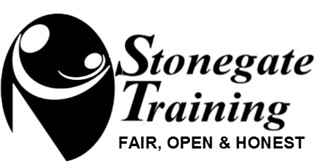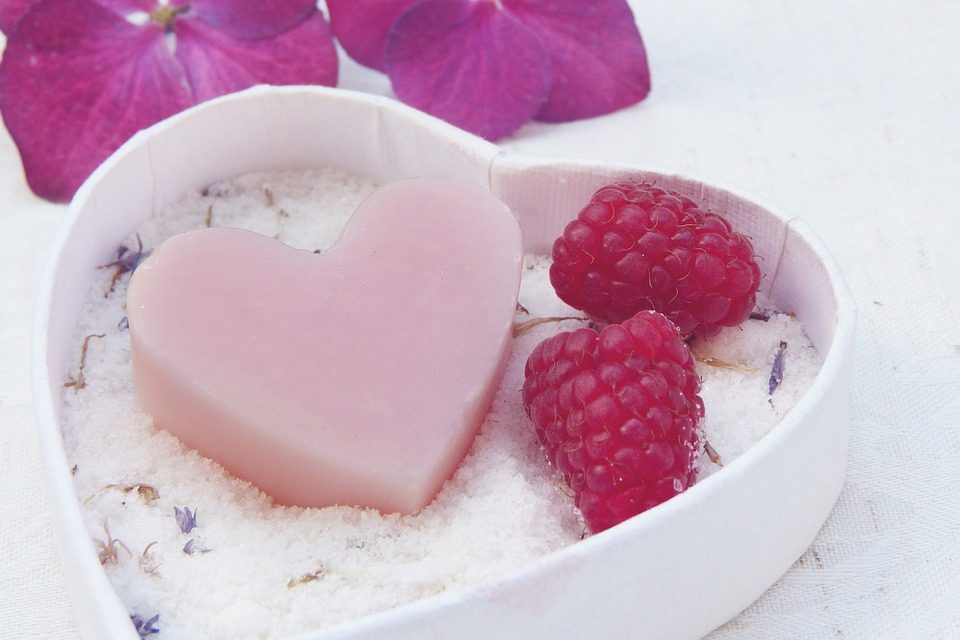Menopause Musings
Blog May 2021, updated March 2023 – Debbie Garvey
I started blankly at the PC screen. The emotions overwhelming me. Anger, frustration, irritation! Why couldn’t I remember the word. In sheer desperation I rang my husband:
Me: ‘What’s the word for that stuff children like to play with?’
H: ‘Errm, play dough?’
Me: ‘No – outside.’
H: ‘Err, sand?’
Me: ‘No – the wet stuff.’
H: ‘Ohhhh, water.’
Me: ‘No – falls from the sky.’
H: ‘Oh, rain.’
Me: ‘Yes, yes – rain – that’s it’ And I hung up…
I have spent 35 + years working in this exhilarating and inspirational sector we call education, specialising in early childhood. I’m an independent trainer, consultant and author – so yes, you could say words are important. Situations like the ‘rain’ one were becoming more and more frequent – it was like a fog in my brain, my brain didn’t feel like my own. Forgetting simple words is not a great thing – especially when your business is all about words.
Later, when I was talking to my husband about the day (and the word forgetting) I also apologised for my rudeness. He replied that he was used to it and commented that he knew I’d been tired recently and that a little grumpiness was to be expected!!! A few days later in a (professional) meeting, I struggled to hide my irritation at something I perceived as ridiculous, and then snapped at a colleague. I knew just how two-years-old feel when it all just gets a bit much. I arrived home tearful, racked with guilt and spent the evening slowly and methodically dissecting my every word and action, whilst simultaneously eroding my own self-esteem and confidence. And, although I didn’t know it at the time, this was probably the start of my journey towards the menopause.
Not longer after this my periods became erratic. Nothing for weeks, then three bleeds in five weeks – I had no idea from one week to the next. The stress was phenomenal. I couldn’t leave the house without ‘supplies’, booking breaks away was a nightmare and I was so conscious of finding myself unprepared, that any kind of spontaneous coffee or meal out was a positive minefield. The hot sweats soon followed. I’ve never liked the heat – but this was something else. Starting in my stomach and spreading outwards like the rings of a ripple on water. Literally head to foot, drenched in sweat within seconds, followed by the tell-tale instant cool down and shivering. Mainly, I experienced hot sweats at night – needing to change the bedding more often added to the stress of an already busy life. But I still dare not leave the house without deodorant – just in case… Worse though was the interrupted sleep.
Being regularly woken throughout the night with night sweats became routine. The issue then became going back to sleep – instead, staring at the ceiling into the wee small hours as my mind raced through all the things I was becoming hopeless at, became my normal evening occupation. The tiredness was soul-destroying. I could not function. Because I could not function – I was irritable, snapped at people and made mistakes. Because I snapped and made mistakes – I spent more time questioning my abilities. Which led to more eroding of self-esteem and confidence – which led to more sleepless nights. The tiredness heightened my emotions, I felt tearful most of the time. It was this that eventually led me to the doctors.
In the height of a too-hot-for-me summer, I made an appointment at my local practice. I specifically asked to see a women’s health/menopause specialist – thankfully they had one. I asked my husband to come with me – as he is known for his honesty (which I thought would be helpful). He also has an almost photographic memory – so I knew he’d likely ‘hear’ more than I would in my tearful, irritated, too hot and flustered state.
Sister Jane was amazing. A similar age to me, she listened patiently whilst the words tumbled out – tearful, angry, lack of tolerance, bleeds, anxiety, sweats, lack of patience, tired…. When I finally ran out of steam, she very quietly asked ‘When did this start?’ I was about to say, ‘a couple of months ago’, but before I could answer my husband said ‘About Christmas time, maybe a bit before.’ I opened my mouth and looked at him. ‘What, why didn’t you say something?’ I asked. ‘Because you’ve either been in floods of tears or shouting at everyone,’ he replied simply. (He had a point…)
I left the surgery armed with an array of information to read – leaflets, website addresses and so on. This I could do. Reading fits naturally with my role as a researcher to inform my work practices. More than that, reading is my safe place. If I am worried, I read. I read everything – books, academic journals, blogs, social media – any form of potentially educational information has the possibility to inform me. This links to one of my areas of interest – neuroscience – and knowing that worried brains cannot concentrate. In reality, this is the fight, flight, freeze mode that happens when we are unsure. Having more informed information helps to calm my brain.
Over the next few months, I fortified my defences with knowledge. Perusing various forums and seeing others’ experiences made me realise that this is appropriate for my age and normal. Reading the medical journals meant more understanding of the signs and symptoms and what to look out for. All of this meant less self-deprecating behaviours. I tried HRT but it wasn’t for me. Walking more, and a healthier diet helped (but that’s probably true of any age group), but sometimes so did curling up with a good book under a blanket all weekend. I had occasional phone calls with Sister Jane if I needed to discuss something specific. And, I learnt mindfulness and guided relaxation techniques to help with general anxiety and sleep patterns.
The physical symptoms of the menopause continued. Although actually I should say peri-menopause, as the ‘official’ guidance in most places seems to state that the menopause is 12 months after your final period. Twice I thought I had hit the magic milestone of ’12 month’ period-free, only for my body to betray me and leave me having to re-set the counter to zero again! However, between me and you, and actually any woman who will listen, it was the following that was the biggest game-changer for me.
‘You really should get checked for diabetes’, said the young woman behind the counter at the chemist. ‘You’ve been buying this cream a lot recently, and recurring thrush can be a sign of diabetes.’ The chemist was probably right about the appointment – this had been going on for months. I was almost permanently in pain, which made me even more tearful and anxious.… so, I dutiful made an appointment. By then our GP practice had a new GP – a woman who specialised in the menopause – woo hoo!!!
The appointment came and I explained the chemists’ comments. ‘Ahh’, said the GP, ‘do you moisturise?’ I subconsciously touched my face, whilst thinking ‘strange question’… ‘Errm, no, not there’ said the GP, her eyes lowering to my nether regions… I blushed confused… moisturise… THERE!!! ‘Errm, well no’… I spluttered…
Up shot is – it turns out that the pain/feeling associated with vaginal dryness is much the same as thrush, and that thrush is often misdiagnosed in women our age… and… that regular moisturising MAKES A HUGE DIFFERENCE… who knew…. So, I now tell women – yes, it is a bit embarrassing and a bit uncomfortable – but not half as uncomfortable as the pain I endured for months and months before seeing this particular GP. This worked for a while – and is still useful now – but then a couple of post-menopausal bleeds caused some alarm, and tests for (thankfully not) ovarian cancer. Since then I’ve started further treatment with Vagifem – which I personally have found incredibly effective.
So, to finish up – the menopause is an individual journey, which we all experience slightly differently, but there are some similarities. The emotional side for me started earlier, but I learnt techniques to help. The physical symptoms took longer to start, and although the physical symptoms can last some time after the final period – I think I can finally see the light at the end of the tunnel. I think what I’m trying to say is… there is hope – hang on in there the menopause doesn’t last for ever. I’ve gone from not being able to remember the word for rain – to writing my fourth book and signing up for my MA. Do I still forget words – yes, sure, but no more than anyone else. I finally feel like the fog has lifted, and my brain is my own again.
In my opinion, having conversations about the menopause helps with the journey – it’s always easier if there’s someone to hold your hand. I was delighted to connect with Jo McShane via Twitter, (@MenopausED) very late one night as we had a discussion about the lack of conversations around the menopause in education. In an industry that is predominately women, and as a race, we are all, as Kate Moxley (@Katemoxleyeyc) said to me, ‘likely to go through the menopause, or love someone who will’.
Some thoughts:
- Listen to your body – it usually has a good idea what it needs
- Get a good health care professional that specials in women’s health (and the menopause in particular if possible) – and keep asking until you get one. Many GP practices share their expertise across sites – so it might be there is someone at another practice who can help.
- Take someone honest with you to appointments – their honesty will help – and they’ll pick up things you might not.
- If it’s dry moisturise it – yes, there… If you’re hands are dry and sore – you’d moisturise – other bits sometimes need a bit of TLC too!
- Don’t be fobbed about treatment – check out the NICE guidelines on menopause https://www.nice.org.uk/guidance/ng23/chapter/Recommendations
- If you are struggling sleeping – learn some guided meditation (there’s some great videos on You Tube – I really like the New Horizons ones, such as The Sleepy Candle – https://www.youtube.com/watch?v=gv5pKucs1rc
- Menopause Matters is a phenomenal website – it was my go-to place for any queries – the forum is full of women just like us: https://www.menopausematters.co.uk/ (There is also a section for partners which is really helpful).
- If you are working throughout the menopause, if you have women in your workforce – then read this: https://www.cipd.co.uk/knowledge/culture/well-being/menopause/people-professionals-guidance or this https://www.acas.org.uk/menopause-at-work

